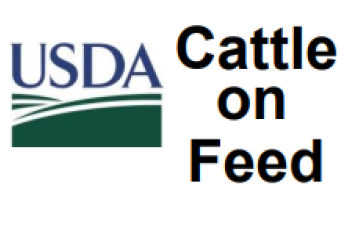Evening Report: March 9, 2022

Check our advice monitor on ProFarmer.com for updates to our marketing plan.
USDA unexpectedly raises wheat stocks... With a warning that the recent Russia/Ukraine invasion adds significant uncertainty to its report, USDA increased U.S. and global wheat stocks in its monthly World Agricultural Supply and Demand Estimates (WASDE) Report. U.S. and global corn and soybean stocks were trimmed.
USDA unexpectedly raised the U.S.’s 2021-22 wheat ending stocks by 5 million bu. to 653 million bushels. U.S. wheat exports were reduced by 10 million bu. to 800 million bushels. Global ending stocks were estimated at 281.5 MMT, up 3.3 MMT (121 million bu.) from last month but are still projected to fall 8.8 MMT (323 million bu.) from last year. Australia’s wheat production was increased by 2.3 MMT from last month.
For corn, U.S. carryout stocks were cut by 100 million bu. from last month to 1.440 billion bu., mostly on increased corn exports. Global corn ending stocks were trimmed 1.3 MMT (48 million bu.) to 301.0 MMT for 2021-22.
U.S. soybean ending stocks were reduced 40 million bu. to 285 million bu. due to U.S. exports replacing reduced South American production. Overall, USDA cut South American (Brazil, Argentina and Paraguay) production 10 MMT (37 million bu.) from last month. Global soybean carryout stocks were trimmed 2.9 MMT (107 million bu.) from last month to 90.0 MMT.
At 3.5 million bales, U.S. cotton ending stocks were unchanged. Global cotton ending stocks at 82.6 million bales were cut 1.7 million bales from last month and are now forecast to decline 4.8 million bales from 2020-21.
Click here to view details of the report.
Russia/Ukraine update... A Russian airstrike today hit a children’s hospital and maternity ward in the besieged Ukrainian port city of Mariupol. Meanwhile, authorities evacuated civilians in bombarded towns around Kyiv, Mariupol, Enerhodar and Volnovakha in the south, Izyum in the east, and Sumy. There are some concerns about a possible radiation leak from the Chernobyl nuclear plant as the facilities have been without power for 48 hours. However, the U.N. nuclear watchdog saw “no critical impact on security.”
Ukrainian President Volodymyr Zelenskyy repeated his offer to discuss Russia’s neutrality demand as long as his country is given security guarantees. However, he said there has to be an immediate cease-fire and withdrawal of Russian troops to start the talks. Zelenskyy said he would not give up any territory, and demanded Ukraine could seek NATO membership. Kremlin spokesman Dmitry Pesko said Ukraine and the world would need to recognize the Donetsk and Lugansk People’s Republics (DPR and LPR) are sovereign independent states, Russian news agency TASS reported. A fourth-round of Russian-Ukrainian talks may occur after a meeting between Russian Foreign Minister Sergey Lavrov and his Ukrainian counterpart Dmitry Kuleba, in Turkey on Thursday.
More companies are suspending business in Russia. Meanwhile, Russia’s central bank sharply tightened currency restrictions.
Russia offers farmers economic support for spring planting... Russia will provide farmers with short-term loans with preferential rates worth over 160 billion rubles to ensure they have access to the inputs for a successful planting season, according to Prime Minister Mikhail Mishustin. He said the planting season that just started must go “uninterrupted.”
Mishustin did not discuss reducing wheat exports. However, he said the country must prioritize grain supplies for domestic use.
The Russian government will also cut taxes on light vehicles, allow some companies not to disclose their corporate documents, remove income tax on deposits, help Russian airlines to keep their foreign fleets and retaliate against countries banning Russian ships entrance to their ports.
War in Ukraine has severely hobbled shipping in the Black Sea... The shipping disruptions have broad consequences for international transport and global supply chains, the Wall Street Journal reports. Dozens of cargo ships are stranded at the Ukrainian port of Mykolaiv, shipping trackers said. An estimated 3,500 sailors have been stuck on some 200 ships at Ukrainian ports, according to London-based shipping tracker Windward Ltd. More ships are stranded around the globe than at any point since World War II, maritime historians noted. The result is a shutdown of the world’s second-largest grain exporting region. Ukraine accounts for 16% of global corn exports, and together with Russia, 30% of wheat exports. Global wheat prices have jumped more than 55% since the week before the invasion.
U.S. diesel prices hit record-high... Prices for diesel fuel across the U.S. jumped to $4.849 a gallon the past week, the highest level on record. The increase of nearly 75 cents from the week before came as crude prices reached levels not seen since prior to the 2008 financial crisis. The Wall Street Journal reports the rising prices will add to the continuing pressure on shipping costs as truckers seek to pass expenses along in a cycle likely to fuel additional consumer inflation. The threat to consumer markets may pose the bigger threat to cut off a boom period for freight transportation operators. National average gasoline prices have already surged to a nominal record of $4.17 per gallon and the potential for even tighter supplies will likely drive prices higher.
Spain seeks to purchase Argentine corn... Spain is looking to import Argentine corn as Spain’s Agriculture Minister Luis Planas lobbies the European Commission to allow biotech corn and corn with herbicide residue traces to be imported. Planas explained his country needs to make corn buys within 60 days. Spain’s ag ministry and its feed industry have been in talks with Argentina’s corn exporters to make the purchases happen. A member of the Argentina corn export association thinks the import rules will be revised to allow corn imports.
Italy tells businesses to source Canadian durum wheat... After meeting with various firms and associations, Italian firms can purchase durum wheat from Canada, according to the Italian industry ministry. The ministry has not found replacement suppliers for sunflower seeds, iron and clay.
USDA trade data delayed... USDA has delayed the release of its U.S. Agricultural Trade Data Update that was originally scheduled to be released today. The report is now scheduled to be released Thursday. The data is usually released the day after the broader International Trade in Goods and Services data is updated by the Census Bureau. But USDA’s Foreign Agricultural Service posted a notice on its Global Agricultural Trade System (GATS) site Tuesday that it was “experiencing technical issues” with uploading the January 2022 trade data.
Farmers should consider high crop coverage levels... With the recent Russian invasion of Ukraine, farmers should consider revenue protection crop insurance at a high level, according to agricultural economists on the University of Illinois farmdoc website. The possibility of higher harvest prices is increased. This increases the value of the price guarantee aspect of revenue protection crop insurance. The spring price was already set in February.
The economists explain combining revenue protection at high coverage levels with the enhanced coverage option (ECO) and supplemental coverage options (SCO) offers more protection at higher crop insurance premium levels. Farmers concerned about the high premium costs can use revenue protection with the harvest price exclusion and ECO. Farmers are warned if they purchase the revenue protection with harvest price exclusion, the guarantee will not increase.
Any crop enrolled in ARC is not eligible for SCO coverage on that farm. Farmers can purchase ECO regardless of their ARC/PLC decision. The economists note that higher prices mean less chance of an ARC or PLC payment. The deadline for making the ARC/PLC election and enrollment and crop insurance sales deadline is March 15.
Hog producer payment recap... Hog producers who sold hogs through a spot market sale during the Covid-19 pandemic have until April 15, to submit their applications for USDA’s Spot Market Hog Pandemic Program (SMHPP). The program is part of USDA’s Pandemic Assistance for Producers initiative and originally had a deadline to submit applications by Feb. 25. SMHPP assists hog producers who sold hogs through a spot market sale from April 16, 2020, through Sept. 1, 2020, the period during which these producers faced the greatest reduction in market prices due to the pandemic. USDA is offering SMHPP in response to a reduction in packer production and supply chain issues due to the Covid-19 pandemic, which resulted in fewer negotiated hogs being procured and subsequent lower market prices. USDA’s Farm Service Agency (FSA) began accepting applications for SMHPP on Dec. 15, 2021.
In December, USDA published a notice of funding availability for hog producers who were not able to sell hogs on the spot cash market during the pandemic. USDA Secretary Tom Vilsack previously said when USDA initially set it up, his agency realized some issues relative to eligibility requirements that created challenges.






